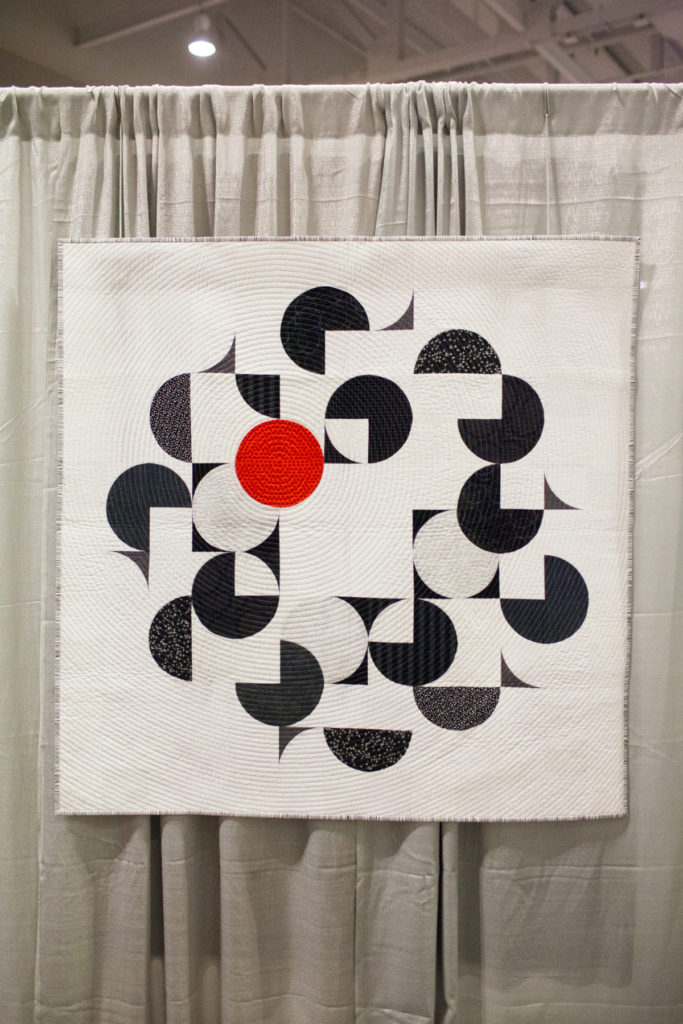Unoccupied : The Importance of Negative Space is a juried gallery show of “modern quilts”, as defined by The Modern Quilt Guild. The vision for Unoccupied : The Importance of Negative Space is to challenge quilters who are members of the Boulder Modern Quilt Guild to create functional, modern quilts with a focus on the importance of using negative space in the quilts’ design.
Members of the Boulder Modern Quilt Guild will be able to submit up to 3 quilts to be juried and we will also be accepting several 3D pieces.

Negative space should be featured as a main design element:
Negative space is an essential design component in the world of modern quilts. Negative space is an area of the composition that is left blank or appears to be left blank. It is common practice in modern quilting to use the area of negative space created by the fabric to feature a special quilting design (by machine or hand quilting). The use of sashing, borders, or background as negative space is seen often. Secondary negative space is a more advanced concept in which the negative space itself takes on a design of its own. The creative use of negative space is an important characteristic of modern quilts.
Negative space allows a place for the eye to rest away from the subject of the quilt. Keeping negative space as a feature of any quilt brings more focus to the subject while allowing the viewer to continue appreciating the work because of the area provided for the eye to rest.
Just as negative space in modern quilt design is important, it is important to have negative space in our lives and community. Rather, the importance of open space within our surrounding environment gives our eyes, and bodies, a place to rest. Open space is an asset in Boulder and the surrounding communities. Quilters submitting to this show are called to consider the importance of Open Space in our environments while designing and making their quilts.
Registration open through September 1, 2019, read the full call for submissions.
